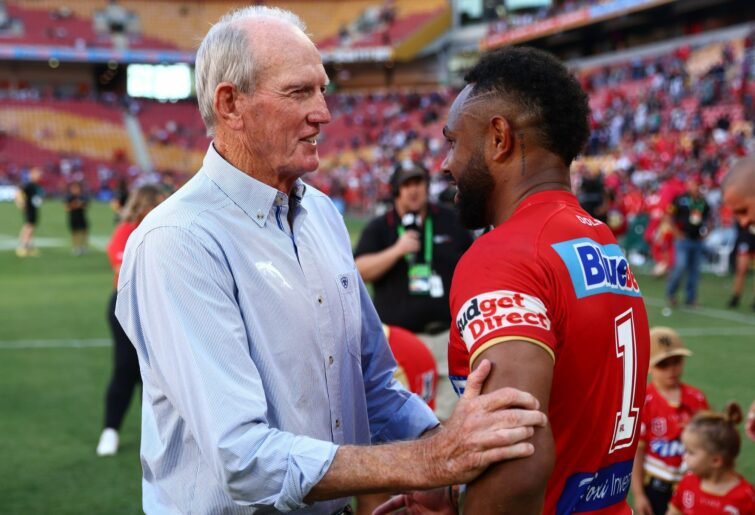Breaking: Premiership-winning Rooster announces shock retirement at season's end
The Sydney Roosters have been dealt another major blow with club legend Luke Keary announcing that he will retire from the NRL at the…
Opinion
“Teams do not go physically flat; they go mentally stale”.
That’s a Vince Lombardi gold nugget that sounds more impressive when you mention his name.
The success of coaches like Wayne Bennett is their ability to get the best out of a player’s mind rather than their body. Having no knowledge of what goes on inside a professional sporting club like an NRL team I often wonder how much time is spent getting them mentally fit versus physically fit.
By the time a player makes their NRL debut they are a rare physical specimen. They have large, powerful frames, they have athletic ability, they have ball skills and they have had their natural strength and endurance honed to a high level.
In many ways getting and keeping an elite athlete in top shape should be relatively straightforward. After all they are in a full-time professional environment for 11 months of the year.
Surely if you treat them like racehorses and put the right food in, train them hard, you are going to get them close to the mark physically. And the clubs do, most of the players look pretty similar.
Mentally though, this is where the difference can be made. Young men in their 20s, living away from home in a high stakes’ environment are not stable or reliably mentally strong – this is why the insurance industry charges them more.
For many reasons there is often a lot of noise in a young male head. It is the mentor who can quieten this noise who is adding value and unlocking their potential.
It is the mentor who can replace this noise with a singular focus who is more important than all the strength trainers, nutritionists and skills coaches put together.
If anyone watched Bennett before his 900th NRL game at Magic Round it was fascinating. The TV cameras were making a big deal of his achievement and cut to the dressing room many times in the hour leading up to the Dolphins game.

Dolphins coach Wayne Bennett with fullback Hamiso Tabuai-Fidow after the win over the Sydney Roosters. (Photo by Chris Hyde/Getty Images)
Each time they cut to the room Wayne was looking very relaxed and having a friendly, almost intimate chat with an individual player.
It wasn’t thigh slapping humour or yelling. It looked like two people having, and I can’t think of any other way to describe it, a really good conversation.
Each time the cameras came back to the rooms, this 73 year old was having a quiet conversation with another player. Wayne and the players are still relatively new to each other. But this footage spoke to the strength of the relationships that already exist between Wayne and the players.
I’m confident that most clubs have welfare officers and sports psychologists but is their attention more on solving problems rather than preventing them occurring in the first place? Do clubs invest in the proactive mental fitness of their athletes so that they are free of distraction and instilled with a positive desire to perform well personally and for the team?
I think of current young players such as (insert the name of the frustrating young player at your club) who have all the talent world and wonder who is guiding their choices.
I assume they get to the training paddock on time and train hard, but I wonder if enough time is invested in understanding what lies between the players ears. Working out what makes them tick.
Fitness is focused on measuring and improving. If I was running an NRL club, I would spend a lot of time trying to understand each player’s emotional and mental fitness. Create a baseline in the off season, free of scrutiny and game day stress.
Track this wellbeing throughout the season, with injury, with losses, just as you do physical fitness. The players should be interviewed each week so this information can be built up.
Of course, this is where the rub comes in, players will gladly tell their strength coach that they want to do heavier squats to improve their leg drive, but they will shut up like a clam when it comes to acknowledging the voices in their head.
This is when trust and relationships come in. If a player has someone they trust, then they may let them in. Gaining that trust is the hard bit, but once a mentor has the player’s trust, they have something they can work with and build.
This is a uniquely valuable skill, forming trusting relationships quickly in a competitive environment. Perhaps this is why only one coach has made it to 900 NRL games.